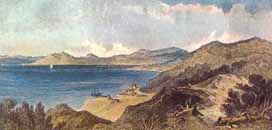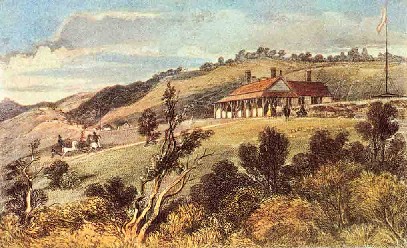 | Twelve months in Wellington / by John Wood (1843)
Chapter 13 |
| Contents: narrative | chapters: 1 | 2 | 3 | 4 | 5 | 6 | 7 | 8 | 9 | 10 | 11 | 12 | 13 | 14 | 15 | 16 | 17 | |
The new method of disposing of waste lands in our colonies at a uniform price is a great improvement over the old mode of grants. It creates a fund for the supply of labour, without, however, in the case of New Zealand and the New Zealand Company, making an adequate provision for its employment. Capitalists, enticed by the bait of a town-acre, greedily purchased to re-sell, or as a provision for children. It may answer in New South Wales to devote the entire emigration fund to the supply of Labour. New Holland and New Zealand are widely dissimilar countries. The forest of the former can be traversed by wheeled vehicles, but in the mountainous fastnesses of the latter a man can hardly penetrate them on hands and knees. Lord Stanley has, therefore, by directing half this fund to the country's improvement, done good service to New Zealand. For surely it is better to give profitable employment to a certain amount of labour, than by throwing more into the market leave the greater portion idle. This is evident : not to mention the still more urgent reason, of having in the one case a country with roads, and in the other a country without them.

We however go farther than his Lordship, and would employ the whole land-fund in the internal improvements of the colony. Emigration is a question for the consideration of the mother-country. She has a surplus population to provide for; and instead of grudging the means of sending them abroad, she should rejoice that Providence has furnished her with so many resources for her redundant hands. She should bear the burden; and the land-fund should be the means of giving employment in her colonies to labour when private enterprise is deficient.
|
